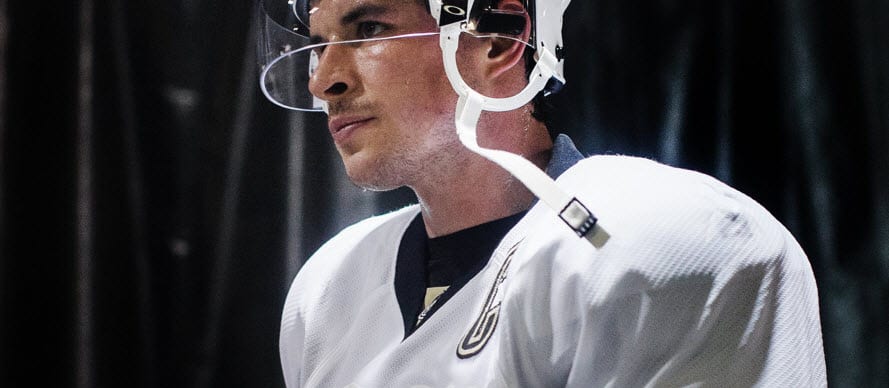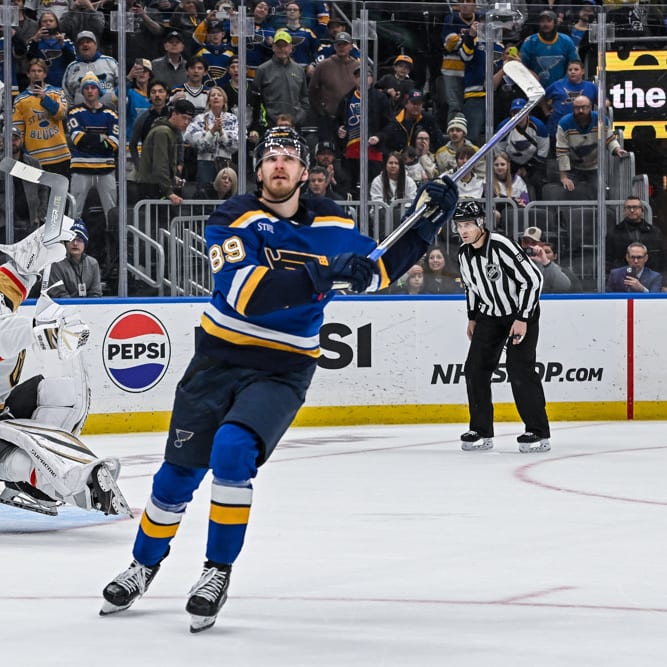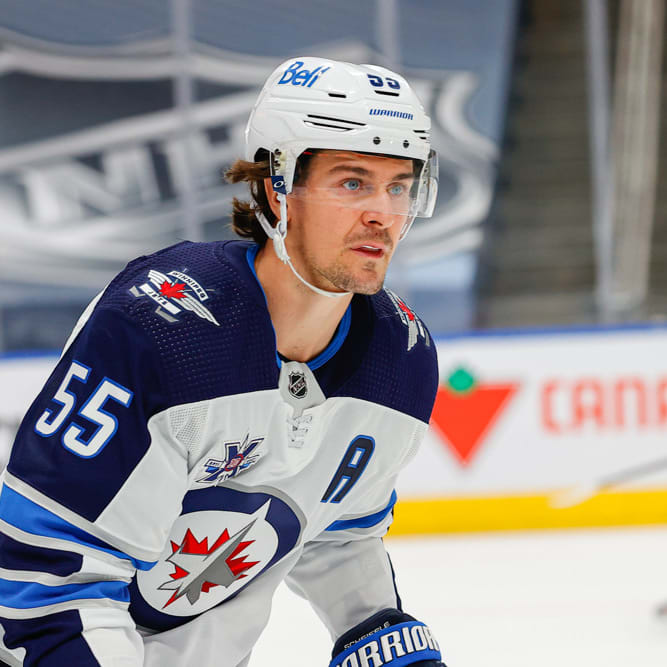When we're coming up with All-Decade Teams we need strict criteria, otherwise the arguments would be endless. But there is a legitimate argument between quantity and quality, so where do we draw the line? Pavel Datsyuk played sevens seasons in the 2010s, and during that time the Magic Man gifted us this timeless ankle-breaking clip, won a Selke and finished top-five in voting four other times. He is one of the best two-way players ever and his possession stats prove it, but can you really be All-Decade if you rank outside the top 100 in points?
So, to appease the mainstream crowd and the more analytically inclined, I'm going to do it both ways. In customary All-Star Team fashion, there will be both a First Team and a Second Team, and no overlap is allowed between the mainstream and analytics teams. Stats and figures are all cumulative since the 2009-10 season (I know that's 11 seasons but it's also the first season the NHL has made possession stats available) with a minimum of 400 games played, which is close to half of the maximum of 868 by the end of this season. (Except for Keith Yandle, who can end up with 870. Serious question: do you get paid extra for that?)
The first team will be one with the popular names and the individual trophies. Quantity is king, reputation matters and championships count. These are the most highly-regarded and well-decorated players of the decade, the ones we'll recall most fondly when we reminisce. These are players who are obviously a step above everyone else to the naked eye.
The other team will be determined mostly by using advanced stats (though raw scoring still counts) that have become so commonplace in today's game. Quantity matters a little less, and the emphasis is on overall quality on both sides of the puck at 5-on-5. These are the players we always seem to forget because their impact on the ice isn't always just about scoring, so their greatness isn't always so obvious.
Team Hardware
First Team
Sidney Crosby, C, Pittsburgh Penguins
Alex Ovechkin, LW, Washington Capitals
Patrick Kane, RW, Chicago Blackhawks
Erik Karlsson, D, Ottawa Senators/San Jose Sharks
Duncan Keith, D, Chicago Blackhawks
Henrik Lundqvist, G, New York Rangers
This is the biggest no-brainer of all-time. Since the beginning of the decade, Crosby, Ovechkin and Kane are the only players to have scored over 800 points. Since the 2009-10 season, they have combined to win two Art Rosses, three Harts, four Ted Lindsays, eight Rocket Richards, four Conn Smythes and six Stanley Cups. That sound you hear is the Hall of Fame knocking.
In the past decade, Karlsson and Keith have won four Norris Trophies. Karlsson's dominance was obvious; he singlehandedly forced the league to re-think how the position should be played, and his ability to slip through everyone and generate scoring chances was unmatched. He came one goal shy of carrying the Sens to the Finals. Keith is the more traditional two-way defenseman who never seemed to tire, and he's just the fourth defenseman to win the Conn Smythe this millennium.
Lundqvist made liking the Rangers cool again and was truly one of the league's most marketable stars, selling magazine covers and rubbing shoulders with celebrity elite. He has over 300 wins and 40 shutouts, ranks top three in overall save percentage and even-strength save percentage, and he's also number one in saves and minutes played by significant margins. He was the most reliable goalie in the league for a decade.
Second Team
Nicklas Backstrom, C, Washington Capitals
Evgeni Malkin, LW, Pittsburgh Penguins
Steven Stamkos, RW, Tampa Bay Lightning
Drew Doughty, D, Los Angeles Kings
Brent Burns, D, San Jose Sharks
Carey Price, G, Montreal Canadiens
There's no way of picking any team that will make everyone happy, but if we are truly trying to select the best players of this decade, we'll have to be slightly liberal with positions. The most obvious omissions are Claude Giroux and John Tavares, but if team success is part of the equation, Backstrom edges them with a ring. He is also, anecdotally, a stronger two-way player and one of the decade's most underrated.
Malkin, the league's 101st all-time greatest player, makes a strong case after a 50-goal season in 2011-12 when he swept the individual awards. That's not mentioning his Conn Smythe and three Cups, or the fact that his point-per-game average is second-best. Stamkos has two Rocket Richards, and may have won more had he stayed healthy. Nonetheless, he's the decade's second deadliest sniper after Ovechkin.
A note on Connor McDavid, since it's probably on your mind – I set strict criteria and he hasn't played enough games. This is the All-Decade Team, and despite his prolific scoring and already ridiculous trophy case, McDavid only has two playoff rounds under his belt while others have either won the Cup or led ridiculously good teams. We've gotten tons of highlight reel goals but no sustained team success, and I'm trying to eliminate a lot of recency bias. Of course, I say this knowing McDavid will be the best center of the 2020s and possibly beyond.
One more snub: Blake Wheeler, who's technically the second-best right winger of this decade. He has 200+ goals and 450+ assists as a true winger, but like Giroux and Tavares, his teams were never quite good enough, and he's only climbed into truly elite status in recent years.
Doughty and Burns were easy picks on defense. Doughty is a Norris winner, a two-time champion and has been a pillar of several dominant Canadian Olympic teams. Burns was the only 30-goal threat from the blue line for a long time, and his offensive contributions were significant enough to overcome his mediocre defense.
Price was named to the All-Star Game six times and voted the Habs' Molson Cop winner seven times this decade, and he remains the only goalie in history to win all four major individual awards in the same season. He ranks fifth in wins, third in save percentage and seventh in GAA. He's also won an Olympic gold and was named the best goalie at Sochi in 2014. He was one of the few goalies whose puckhandling ability was so good it sometimes forced teams to abandon the dump and chase.












